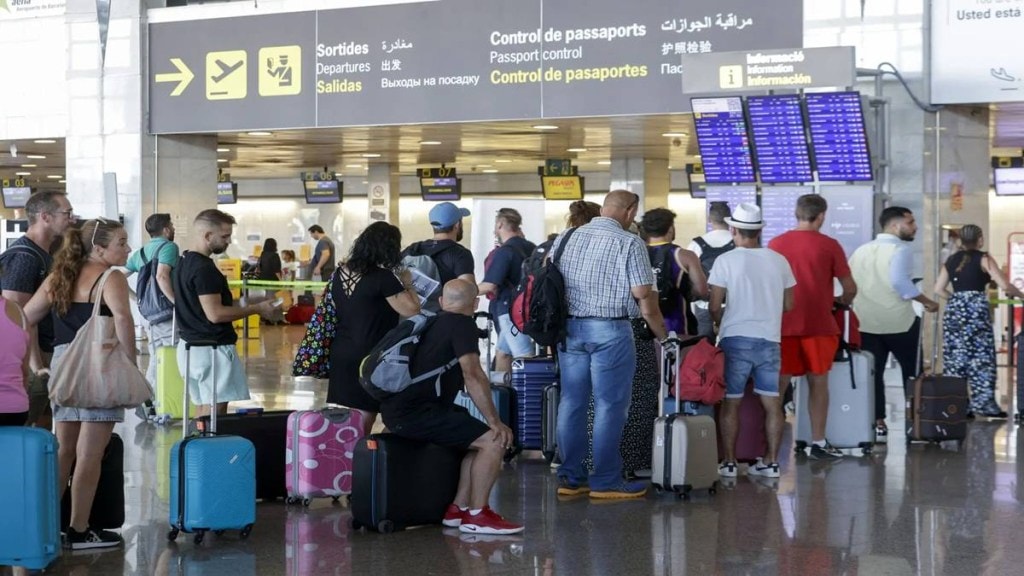A Schengen visa is an entry permit for non-EU nationals to make a short, temporary visit of up to 90 days in any 180 days to a country in the Schengen area. So, what are these areas or countries that require foreigners to enter only with a Schengen visa?
The Schengen area covers 29 countries or Schengen States without border controls between them. These countries are: Austria, Belgium, Bulgaria, the Czech Republic, Croatia, Denmark, Estonia, Finland, France, Germany, Greece, Hungary, Iceland, Italy, Latvia, Liechtenstein, Lithuania, Luxembourg, Malta, the Netherlands, Norway, Poland, Portugal, Romania, Slovakia, Slovenia, Spain, Sweden and Switzerland. These countries apply the common visa policy for short-stay visas.
You can have a single-entry visa that allows you to enter the Schengen area once, or a multiple-entry visa that allows several visits to the Schengen area for as long as the visa is valid. A Schengen visa is not appropriate if you wish to remain in a Schengen country for longer than 90 days, take up employment or establish a business, trade or profession.
Under the visa ‘cascade’ regime for India, Indian nationals are issued long-term, multi-entry Schengen visas valid for two years after having obtained and lawfully used two visas within the previous three years. The two-year visa will normally be followed by a five-year visa, if the passport has sufficient validity remaining. During the validity period of these visas, holders enjoy travel rights equivalent to visa-free nationals.
Airport Transit Visas
Some non-EU nationals must also hold an airport transit visa when connecting through the international transit areas of airports located in any of the Schengen States.
When a transit is through the international transit areas of airports of the Schengen States, you need to have an airport transit visa. Airport transit visa allows you to connect through the international transit area of an airport in the Schengen area during a stopover or a change of flights. It does not allow you to leave the international transit area.
An airport transit visa (ATV) authorises you to pass through the international transit zone at an airport located on the territory of the Schengen State and to await a connecting flight to a non-Schengen country. The ATV does not allow you to enter the Schengen territory to stay at a hotel or to take an onward flight to another Schengen State, for example.
Traveling to a Schengen State via another Schengen State airport is not considered an airport transit, nor is travelling to a non-Schengen country via two Schengen state airports. All flights between two or more Schengen States are considered to be domestic flights.
Depending on your nationality, you might need a short-stay visa as you enter the Schengen area – even if the stay only lasts a few hours and you remain in the airport outside the international transit zone.
Where to Apply Schengen visa
You must submit your application for a Schengen visa at the consulate of the country you intend to visit.
If you are visiting more than 1 Schengen country, you need to apply at the consulate of the country where you will spend the longest time. If you are visiting several Schengen countries (for stays of equal length, apply at the consulate of the first country you will visit.
Schengen Visa Rejected
You may appeal against the decision if your Schengen visa is rejected. The decision to refuse a Schengen visa and the reasons for the refusal are notified using a standard form that is handed out by the Member State’s consulate that refused the visa.
The notification of the refusal must include the reasons on which the refusal was based, and the procedures and deadlines for submitting an appeal.
You are free to reapply if your application was refused earlier. However, it is recommended that you take note of the reasons for the earlier refusal before submitting a new application and make amendments, where necessary.
The visa fee is not refunded if the visa is refused. As a general rule, once a Schengen visa application is submitted to the Consulate, a decision is taken by the Consulate within 15 calendar days. This period may be extended up to 30 days or 60 days.
Applications can be lodged no more than six months before the start of the intended trip. It is better to apply at least 15 calendar days before the intended visit.
Schengen Visa Fees
The European Commission has increased short-stay Schengen visa (visa type C) fees worldwide by 12 per cent from June 11, 2024. The new Schengen visa fees are 90 euros for adults and 45 euros for children aged 6 to 12 years of age.
